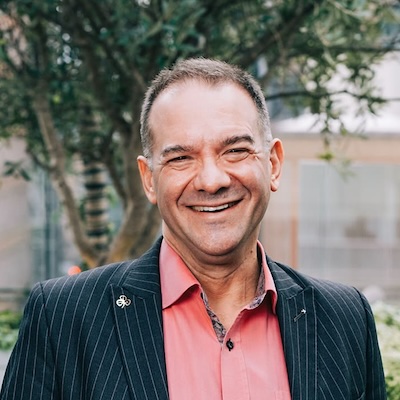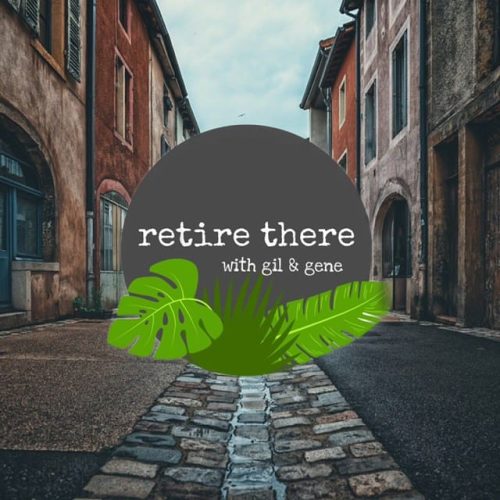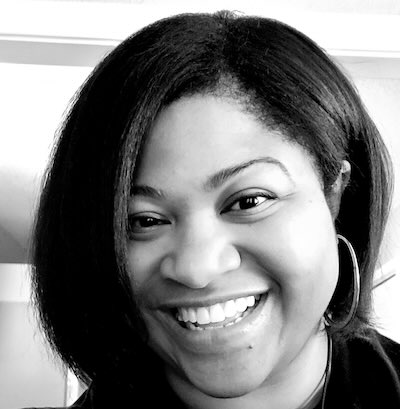Dissecting Midlife: There’s a Point to Unraveling

In this post, I write about the experience of midlife through the lens of individuation, a term coined by C.G. Jung, one of the founders of depth psychology – the study of the unconscious. My favorite writer on the topic is Jungian Analyst, Murray Stein, and one book you might enjoy is, The Principle of Individuation.
You can think about individuation as the process of coming into relationship with all the stuff that’s been sitting in your unconscious for decades. The unconscious can be thought of as your shadow because some of those hidden aspects of you are sneakily following you around, gathering energy, and waiting to jump out to get your attention. You can’t get away from it.
Example:
The versatility and adaptability that helped you
climb the corporate ladder might also show up as the
inability to leave a toxic work culture or relationship
Science affirms that unconscious forces direct up to 95% of who you are – how you think about things and make decisions, your personality quirks, emotional responses, and even to whom you’re attracted. These patterns were mostly established in childhood as your unique way of navigating the world. Those patterns can be seen as mostly neutral until they start to get in the way when you’re looking to make a change in your life or experiencing a particularly stressful period.
We don’t give much thought to this during the first part of our lives, because from the moment a baby notices they are separate from their mother, the race is on to accelerate the development of a separate identity – a healthy ego. We do this through rebellious choices, bonding with certain groups of people, educational pursuits, and achievement. Achievement might be the main way we establish an identity because it highlights most how different we are from others, which is the goal of the ego. Achievement I would suggest may also be what we cling to most as our midlife unraveling begins, because in a society dominated by patriarchal thinking, hierarchy and ranking are correlated with success.
So, we go on our merry way in the first part of our lives, until . . .
Is Midlife Unraveling Inevitable?
Some want to avoid calling it a crisis, but I think that’s spiritual bypassing, or your ego just trying to control the process. Remember, what’s in your unconscious is not known, so when pieces of it come out and challenge your beliefs, it should feel like a crisis. Some of the things you thought were true suddenly cannot be reconciled with the situation in which you find yourself. I remember the moment I discovered I didn’t know myself as well as I thought I did.
Example:
I thought I knew why I was an activist.
I proudly told people that I wanted to leave the world a better place than how I found it. Then, as I stood at the podium to receive an award, I sobbed and sobbed – in front of 100 people.
I later realized my hidden unconscious motivation for being an activist was to feel validated.
Ah! It turned out it was about me, not the world!
The people who think they’re enlightened or have no skeletons in their closet are those most in denial of their hidden vulnerable selves. Unfortunately, we don’t do a good job of preparing people for the inevitable experience of the symbolic death of one way of existing in the world, the death that precedes the rebirth of a more conscious personality.
Now, it is true that some people need a more dramatic event to divert attention to their inner world, and their unconscious will oblige. Others maybe are more attuned to those subtle whispers from their unconscious.

Example:
Unfortunately, I needed a dramatic event to put my attention where it needed to go. The week I saw a coach to explore why my consulting business had mysteriously fallen apart, my husband’s drinking climaxed (neither of us knew he had an alcohol addiction), and my son said he didn’t want to live anymore.
It wasn’t about my business. It was about my family!
How Do You Define Midlife?
When does individuation start? Well, you could say psychological development happens naturally over time, but C.G. Jung was clear that the term individuation applies only if one is conscious about exploring what’s in their unconscious.
What exactly determines whether someone is in midlife? This is an interesting question. Jung suggested that midlife began around age thirty-five, but more significant was his defining midlife as a time in life when one’s energy begins to shift from enhancing ego identity to meaning making, which occurs in our inner world.
You might wonder whether Jung would update the age because life expectancy is longer, but I don’t think so. In fact, many women begin the individuation process at about that age, when having children butts up against their professional lives. And many Millennials seem more conscious in their twenties as they reconcile the desire to find fulfilling work with securing financial resources that will be needed to purchase a home and start a family. Others are maybe late bloomers, staying in denial of what wants to break free from their unconscious by expending more and more energy on things like drinking, sports, work, running marathons, Volunteering, over-giving, over-caring, shopping, affairs, and other activities – an unconscious attempt to hold back what’s brewing beneath the surface.
So, for purposes of this discussion, midlife is that point in life when either by choice or crisis, nothing is quite the same anymore, and the pain of not exploring why this is – or what your state of agitation wants from you – is greater than the pain of being in denial.
The First Task: Exploring and Sorting Through Personal Complexes
A personal complex is just one of those patterns of thinking, behaving, or reacting that’s getting in the way of enjoying life now. What you once enjoyed you no longer enjoy. What once excited you no longer does. You might not even know what you want anymore, you just know you need something else.
Where do you start? With your parents of course (or caregivers). You could have had a perfectly enjoyable childhood, but that doesn’t mean you don’t have patterns that eventually are not up to the task of getting somewhere new in your life. You don’t have to be mad at your parents, although for some, childhood was indeed severely traumatic.

Example:
“What did you learn about love as a child?”
It seems like a simple question but exploring it will take you places you never imagined. It was my first question, and I came across it in a book by Iyanla Vanzant titled, In the Meantime.
Exploring that one question helped me make sense of so much, including how I had shown up in my marriage. Our parents (or caregivers) are our first examples for everything, including relationship, respect, friendship, religious beliefs, values related to work, gender roles, Money, work ethic, and so much more.
Midlife often is a time for questioning why we believe what we believe, especially when a crisis shines a light on things that no longer make sense.
The goal is NOT to get rid of your complexes. The best you can hope for is to become more aware of them and to diminish the havoc they can wreak in your life. Instead, seek to relate to these unconscious forces that honestly want to protect you.
Example:
During my unraveling, I found my inner child, the one that had been hiding
since the start of being bullied in third grade.
Now, she wanted to make up for lost time!
A competing voice – I called him my inner lawyer – was so worried she would get out of hand, which was understandable. At fifty, I found myself swept up in my first post-divorce romance
with a man 17 years younger.
But my inner lawyer was NOT a judge,
he just wanted to make his case.
The Second Task: Opening the Door to the Archetypes
There is something that naturally occurs once you have come into relationship with those pieces of you that were begging to be seen. Energy is freed up for an even more important task, that of inviting the transcendent to flow through you for the purpose of creating what only you can create for the benefit of humanity.
That sounds heavy, but it also can be a wild and wonderful ride. Archetypes are a blown-up version of personal complexes. They are the psychological version of biological instincts. Archetypal energies are universal patterns of human experiences that can’t really be pinned down except in how they get expressed in specific cultures, during specific times, and through specific individuals.

Example:
The feminine and masculine are archetypal energies, whose expression changes over time. During the 1980’s, new expressions of feminine, masculine and ideas about gender
exploded from the collective unconscious.
The film Thelma and Louise, along with reactions to it, are great examples of the archetypes seeking new expression. Enough individual women and men challenged the old notions
that new ideas were adopted culturally.
During this phase of individuation, you may find yourself swept up in something that challenges your notion of what is right or even moral. This is the point, to challenge convention to find truth for yourself and to evolve humanity.
The Third Task: The Wound Becomes the Gift
At the core of the personal complexes and the archetypal energies in which you find yourself swept up, is a wound that is seeking expression as a gift or a natural talent. You’ve always had this natural talent and even may have expressed it, but maybe you noticed that you were never quite as successful as you wanted to be – a kind of self-imposed glass ceiling. That’s because there was a hidden agenda that limited its expression.
Example:
Once I found a secondary unconscious motivation for marrying my husband – safety from my chaotic experiences of men and sex – I could begin exploring my wounds which had to do with
reconciling my sexuality and spirituality.
As these two parts of me fell in love with each other, a buried creative urge was unleashed from my unconscious.
Look at me now!
Being swept up by archetypal energies requires letting go of the reins, but also partnering with your ego to find meaning in the experience, and then to integrate a new attitude about life into daily living. This is a great metaphor for a partnership between the feminine and masculine. The feminine womb is full of chaos, and the masculine focus helps to bring form to the new creative contribution to the world.
Continuing Education: Up and Down the Spiral Staircase

You might be disappointed to learn that there might not ever be an ultimate moment of wholeness even after all this exploration. C.G. Jung used the image of a spiral to describe individuation once it had begun. I think a garden auger drill bit is more accurate. Its purpose is to drill into the ground (unconscious) and bring up dirt (complexes). After drilling down and bringing up a little dirt, the process repeats until the hole is big enough to plant something.
The first drilling is the toughest, and then it gets easier,
and you’re able to go deeper more easily.
Circling back to my mother complex is enjoyable now. I got through the tough part, and now I’m even more curious about her experience within the context of my ancestry.
Are You Ready to Begin Your Individuation Journey?
There’s so much more, but I think a good way to understand individuation is through this three-part framework.
Try this:
Explore your parental complexes. You can start with that question about what you learned about love, or you can replace love with concepts like, work ethic, optimism vs. realism, religion, gender, spirituality, class and privilege, marriage and divorce, parenting, poverty, or any other kind of value. The goal is to find out where an unconscious belief might need to be re-examined because it doesn’t square with your life experience.
Explore whether you’ve been swept up by something that challenged your ideas about convention or even morality. If you’ve already navigated a crisis, like divorce, job loss, death of a loved one, a tipping point when it comes to religious or political beliefs, did you find yourself swept up in an experience that challenged your ideas about right and wrong? How did you manage the tension between letting go of old limiting ideas to expand Consciousness and have a more nuanced understanding of the concept?
Did you find new meaning and renewed sense of purpose? If you’ve been through the previous two stages, how has your attitude about life changed? Did you launch a new business or pursue a new passion? Did you reclaim your artist self? Did you pick up and leave your hometown or a long-term relationship? Do you have courage to do things now that you didn’t before?
Have fun exploring!
Resources:
I’m on a mission to get more people to self-reflect and explore their inner world, which is the only way to change our outer world. Need more resources:

Buy my new book, Your Soul is Talking. Are You Listening? 5 Steps to Uncovering Your Hidden Purpose. I will teach you the language of the unconscious and I expand on this framework for exploring your inner world.
Enjoy my new podcast, Dose of Depth, where I invite people to explore the deeper meaning of ordinary life experiences, through conversation, stories, and Education.
Be entertained and inspired by my blog posts, which are inspired by my midlife journey.
Join my Soul Talk Members Only subscription program. A small monthly contribution of $10 supports my mission to get my framework for self-reflection to more people, and gets you access to monthly live zoom calls. The first one is this Thursday, April 7th, 6pm EST, and I think we’ll be talking about my new book.
Follow me on Instagram @dlukovich to get Reflection Questions and other inspiring posts and updates on what I’m up to.
As always, thank you for your support and for having the courage to explore your inner world.
Give a shoutout to Linus Sandvide on Unsplash for cave photo.
Give a shoutout to Mimipic Photography on Unsplash for woman running photo.
Give a shoutout to Alex Lujan on Unsplash for photo of love between men.
Give a shoutout to Pono Lopez on Unsplash for photo of doorway.
Dr. Deborah
Originally Published on https://www.deborahlukovich.com/blog/
























